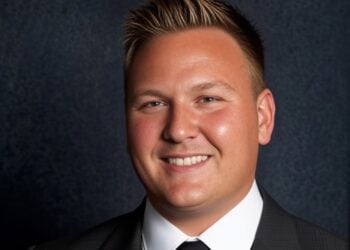Sheri Castillo is the owner of On Your Side Mitigation in Phoenix, Arizona. Prior to starting her mitigation company, she spent decades in law enforcement and as a paralegal in criminal defense. We sat down with her to discuss her journey from probation officer to mitigation specialist.
AALM: How did your decade of experiences as a probation officer, a corrections officer and inmate counselor shape your career? How do those experiences impact you in your current work?
SC: I saw my clients multiple times a week at all hours of the day and night. Seeing them in their homes and getting to know about their lives showed me that while they had committed crimes, they were still human beings. Most of them struggled with addiction. I often spent time acting as a counselor when they broke down and cried.
After a brief period working as a juvenile detention officer, I worked for the Sheriff’s Department as an inmate classification counselor. This is when I realized that if you took away drugs, alcohol and mental health issues, the jails would be empty.
I left the department in 2003 and decided to go into criminal defense work. I was burned out of the law enforcement side. I saw too many instances of people being mistreated.
AALM: You spent 14 years as a paralegal for a criminal defense law firm, what about that experience compelled you to specialize in mitigation?
SC: I became friends with someone who was a mitigation specialist. I saw firsthand how meaningful mitigation was in criminal defense work. I also worked part time for an agency that provided group therapy/classes for people who were court ordered to attend substance abuse or domestic violence classes. In talking with these clients and hearing their stories, I began to understand the question of “why.”
AALM: How has mitigation work evolved over the years?
SC: When I started my business in 2016, only those defendants facing the death penalty could get mitigation paid for at the county expense. In 2018, the rules of criminal procedure changed in Arizona allowing for any indigent defendant charged with a felony to be entitled to mitigation paid for at the county expense.
Because of that change, my business exploded.
AALM: Tell us a bit about the work that you do as a mitigation specialist and some of the challenges you face.
SC: When clients meet me, they have my undivided attention for however long it takes. I’m asking them to share their life story with me, and that is something no one has ever done before. They feel comfortable with me, and they open up and share things they’ve never shared with anyone before, often breaking down in tears as they do so. You must be someone that is empathetic, caring and non-judgmental to be able to connect with these clients and build a level of trust.
Almost all my clients have suffered from abuse and trauma in their childhood. Hearing some of their stories has been heartbreaking. There are times I have barely held it together during an interview and cried afterwards. I have to be very careful not to transfer their trauma to me.
AALM: Looking ahead, what do you hope to accomplish next.
SC: I would like to do a CLE for mitigation so more attorneys realize the benefit of mitigation, especially for their indigent clients who can get my services paid for through the county. Mitigation is much more than simply presenting a bullet point biographical form. We interview clients, their families, employers, friends, etc., and we request and gather medical records and other records if applicable. We then write their report as though we were writing a mini biography. I also like to include relevant photos from different periods of the client’s life. Mitigation is not an “abuse excuse.” Rather, it is the story of “why.”








